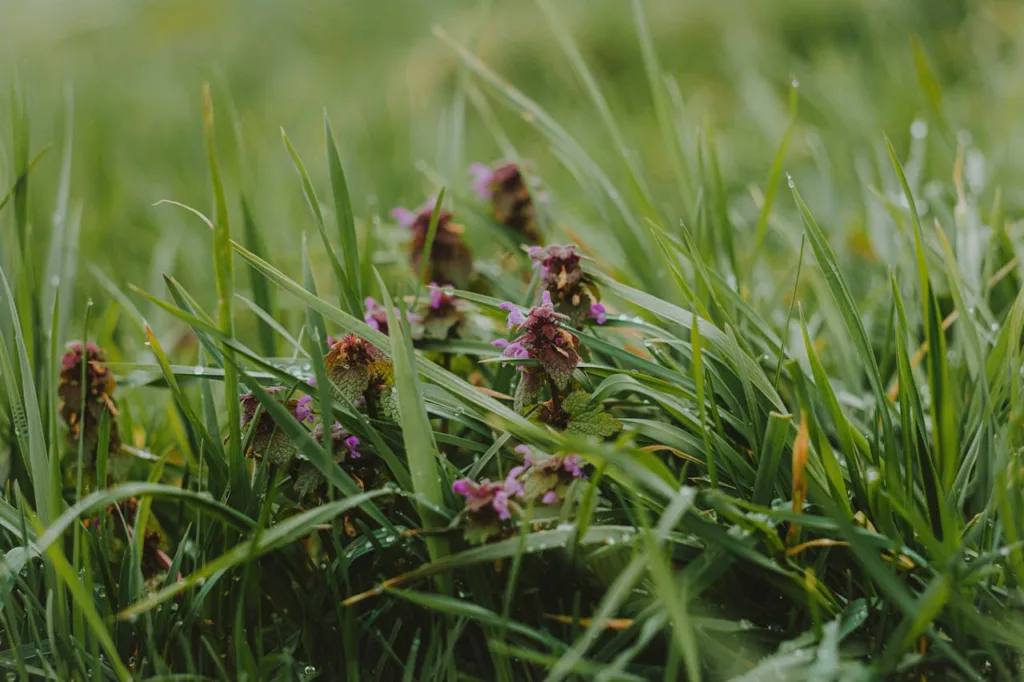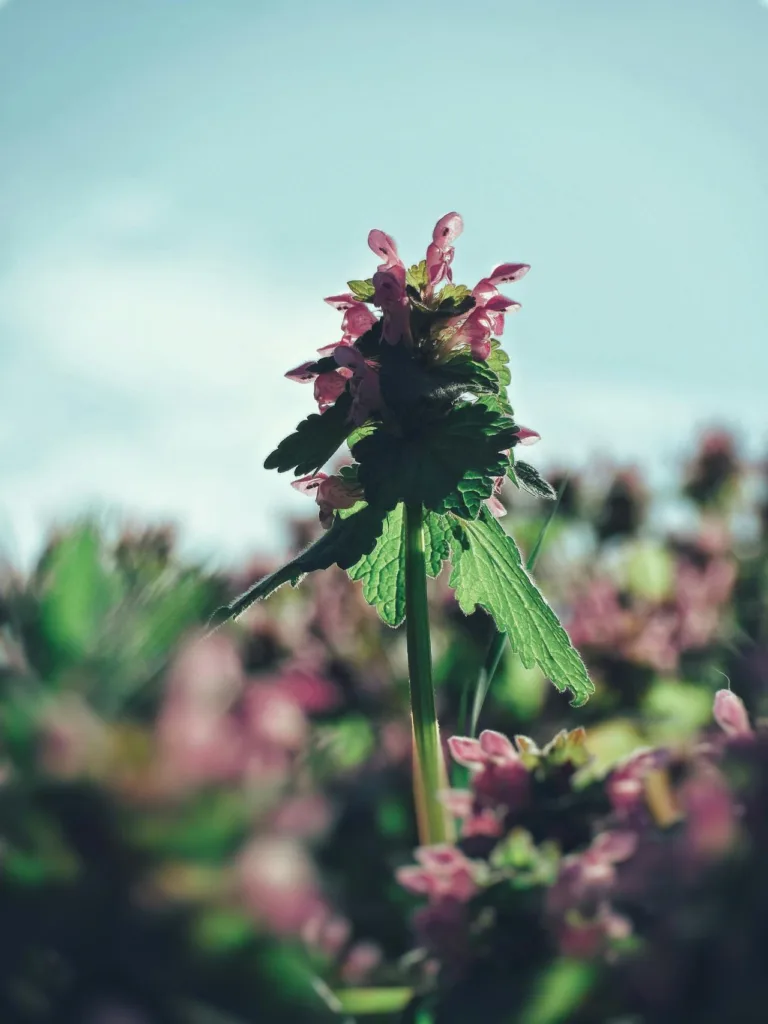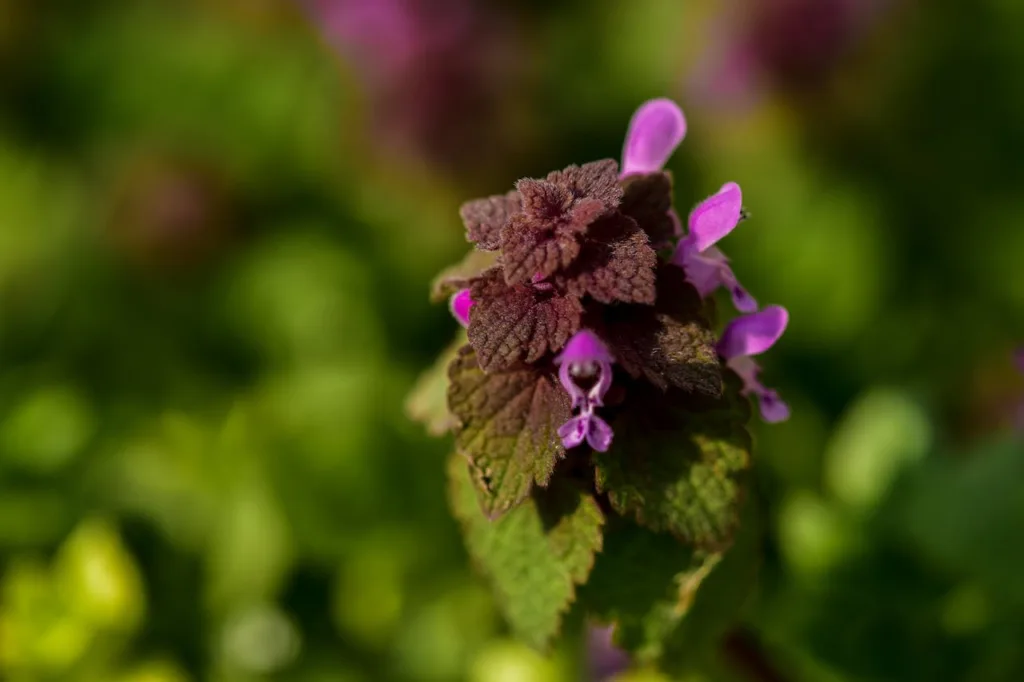Welcome to the world of flora, where every plant tells a story. One such story revolves around henbit deadnettle, a harmless plant that has aroused curiosity and concern among enthusiasts and pet owners. In this article, we will explore this interesting question – is henbit deadnettle poisonous?
What is Henbit Deadnettle?
Before knowing about its toxicity, let us understand what henbit deadnettle is. Scientifically known as Lamium amplexicaule, this annual plant belongs to the mint family and is often mistaken for a weed due to its rapid growth.
| Aspect | Description |
|---|---|
| Scientific Name | Lamium amplexicaule |
| Common Name | Henbit Deadnettle |
| Family | Lamiaceae |
| Genus | Lamium |
| Type | Annual Herbaceous Plant |
| Appearance | Upright growth with square stems, opposite leaves, and whorls of flowers |
| Flowers | Tubular, pink to purple flowers with a distinctive upper lip |
| Leaves | Opposite, toothed, and slightly hairy leaves |
| Habitat | Commonly found in fields, gardens, lawns, and disturbed areas |
| Edibility | Edible; young leaves and stems may be used in salads or cooked |
| Medicinal Uses | Limited traditional use; potential for mild medicinal properties |
| Wildlife Value | Attracts pollinators and provides nectar for bees |
| Invasive Potential | Considered a weed in some areas due to its rapid growth and self-seeding |
| Cultural Significance | Not widely used in cultural or landscaping contexts |

Identification of Henbit Deadnettle
Identification is important, and we will guide you in identifying this plant with its distinctive characteristics, making sure you can see it in your surroundings.
Henbit deadnettle poisoning
Addressing the main concern, we will take an in-depth look at the elements of henbit deadnettle that could be potentially harmful and the extent of its toxicity.
Symptoms of poisoning
Knowledge is power, especially when it comes to recognizing the symptoms of poisoning. Stay informed for the safety of yourself, your pets, and your garden.
Importance of awareness
Understanding the effects of henbit deadnettle poisoning is important to raise awareness and create a safer environment for everyone.
Henbit Deadnettle Control
Prevention is better than cure. Learn effective methods for controlling the growth of henbit deadnettle and protecting your garden or farm.
Henbit Deadnettle in Livestock
Those who have animals know what effects consumption of henbit deadnettle has on animals and how to prevent such incidents.
Safe Removal Methods
Find out eco-friendly ways to remove henbit deadnettle without harming your garden or local ecosystem.

Common misconceptions
Debunk the myths surrounding henbit deadnettle to ensure accurate information.
Alternatives to Henbit Deadnettle
Considering replacement options? We will introduce you to alternative plants that are safe and equally attractive.
Impact on ecosystem
Learn in-depth about the widespread environmental impact of henbit deadnettle and its role in the ecosystem.
Benefits of Henbit Deadnettle
Surprisingly, henbit deadnettle has some benefits. We will explore its positive aspects and its potential role in sustainable practices.

Conclusion
Concluding our exploration, we will summarize the main points, emphasizing the importance of a balanced approach when dealing with plants such as henbit deadnettle.
FAQs
Can you touch deadnettle?
- Yes, you can touch deadnettle. Deadnettle (Lamium) is a non-stinging plant and is safe to touch. It does not possess the stinging hairs associated with some other plants.
What is henbit dead nettle used for?
- Henbit deadnettle (Lamium amplexicaule) is primarily considered a weed, but it is also edible and has been used in traditional medicine. It is not extensively utilized for specific purposes.
What is the difference between deadnettle and henbit?
- While both are in the Lamium genus, “deadnettle” often refers to various Lamium species, while “henbit” specifically denotes Lamium amplexicaule. The terms are sometimes used interchangeably, but henbit is a specific species within the deadnettle group.
Is deadnettle medicinal?
- Deadnettle has been used in traditional medicine, but its medicinal uses are not as well-established as some other herbs. It is sometimes considered for its potential anti-inflammatory and mild astringent properties.
